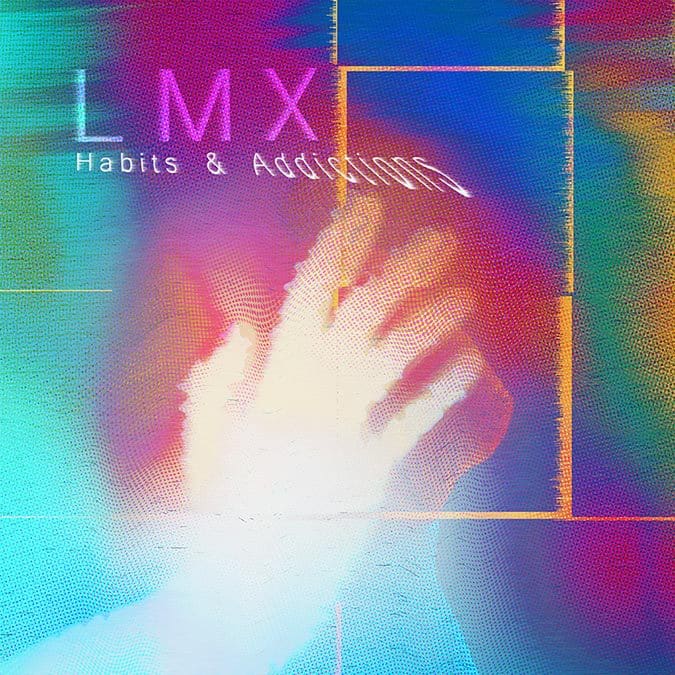Click Interview with LMX: ’Vulnerable, Brutally Honest And Reflected’


Does the name Luis Maximilian Schmechta make ring a bell? This young German artist born in 2003 (!) indeed is the son of André Schmechta better known as ‘Sevren Ni-Arb (X Marks The Pedwalk and owner of Meshwork Music). LMX started making music at very young age and last year already released his third full length album. Mixing elements of Electro-Pop and Ambient music “Habits And Addictions” reveals a mature production but still an original sound with robotic vocals on top. It’s not the most accessible music although it’s fully enjoyable. The opus has been co-produced with André Schmechta and mastered by Olaf Wollschläger. This interview is an opportunity to know a bit more about the sonic universe of this young talent.
(Courtesy by Inferno Sound Diaries)
Q: Tell us a bit more about you and your music background? What means music to you?
LMX: Music is probably the greatest form of art. Paintings or photography are fascinating and can look great but I don’t think that they trigger emotions as easily in that many people. It can cause so much joy, bring people together that never would’ve known each other. At the same time, it can separate unlike-minded people and make you feel uncomfortable. All while being so easy to perceive. To me it’s the only way of expressing feelings that works without saying exactly what you think, if that makes any sense.
Q: We know you as the son of André Schmechta aka ‘Sevren Ni-Arb’. How difficult is it to be ‘the son of’ and what is his influence and impact on your own development as young musician -and especially as he’s also producing your work?
LMX: I wouldn’t talk of any difficulty. I’ve never been suggested a sense of having to prove myself or live up to someone’s expectations because of my father’s work –especially not by him, neither when I started making music. In the last years I’ve been looking into his discography a lot more. I got curious and liked what I heard which is partially why this heavy shift into Synth-Pop has happened for me. That combined with his feedback and the time we’ve spent together in the studio is an enormous inspiration and something I’m very grateful for.
Q: What are your personal music influences and how did LMX saw the daylight?
LMX: I can’t get around mentioning Depeche Mode first here. I’ve been a fan since I was eight years old, after my parents always played their records in the car. I never really stopped listening to their music since then. For some reason it touches and inspires me more than anything I know. It definitely did and always will impact my music. Apart from that LMX was really born in a weird, underground SoundCloud community that evolved around Trap, Bass and Wave, where I took a lot of my know-how and technical approaches from. A lot of that is still deeply woven into my music, no matter how far away I go from my ‘musical roots’.
Q: I think there’s a noticeable evolution in sound and production from your first album “Dimension Shift” (2019) to “Ctrl+S” (2021) to “Habits & Addictions” (2022). How do you perceive your own evolution as ‘young’ artist from one album till the other? How do you see yourself as musician?
LMX: “Dimension Shift” to “Ctrl+S” was an important step for me, especially because I finally started using my voice. Yet looking back at it, I could have gotten a lot more out of it than I did.
Now with “Habits & Addictions” I honestly feel like a different artist. It’s an album that follows a strict concept without being boring or monotone, if I may say so myself. It’s vulnerable, brutally honest and reflected. I finally felt like I was making music that could actually touch someone and not just make them go ‘Oh, that sounds cool, I like it’.
Q: How do you look back at the writing and production of the new album? And tell us a bit more about the production of the vocals which I think is really interesting for the perfect match with your music?
LMX: Although the writing was a very emotional process it was great fun. It also only happened in about a month or two in total. Whether that helped the outcome or not is discussable. The production in general really felt like polishing my work and giving it true value. In the end the songs turned out so much more different from the demos than in any other project. Although I’ve never been as involved in the final production before.
I’m glad to hear someone notice a match between my vocal approach and the final product. It seems like using certain effects or tools like autotune -that have the reputation of making it easy for the artist –‘degrade’ the music for some people. While it might be a bit new to the genre, to me it’s really nothing unusual. I’m a huge Rap / Trap fan so I basically grew up with artists making use of such tools and personally think it sounds great.
Q: I was surprised a young artist like you don’t have a website nor Facebook page. Don’t you think that’s essential to catch a wider attention? And how do you see the future for LMX?
LMX: It might definitely help with catching more attention but I don’t think it’s essential. Take the most successful rappers today as an extreme example. Their main platform is Instagram, sometimes Twitter or TikTok. I might start to work on broadening my presence among Facebook etc. but I don’t feel the need to – especially due to my generation. I think I’d be forcing myself into an environment that doesn’t feel natural.
In the future I want to keep making music that puts everything I’ve made before far behind, explore my creative capabilities and gain the most out of it. Maybe even stand on a stage one day… 🙂
Since you’re here …
… we have a small favour to ask. More people are reading Side-Line Magazine than ever but advertising revenues across the media are falling fast. Unlike many news organisations, we haven’t put up a paywall – we want to keep our journalism as open as we can - and we refuse to add annoying advertising. So you can see why we need to ask for your help.
Side-Line’s independent journalism takes a lot of time, money and hard work to produce. But we do it because we want to push the artists we like and who are equally fighting to survive.
If everyone who reads our reporting, who likes it, helps fund it, our future would be much more secure. For as little as 5 US$, you can support Side-Line Magazine – and it only takes a minute. Thank you.
The donations are safely powered by Paypal.










